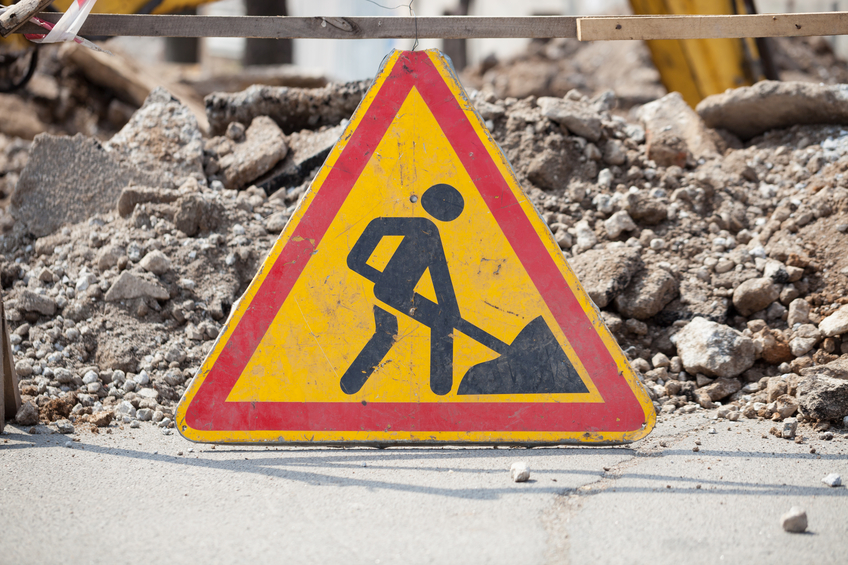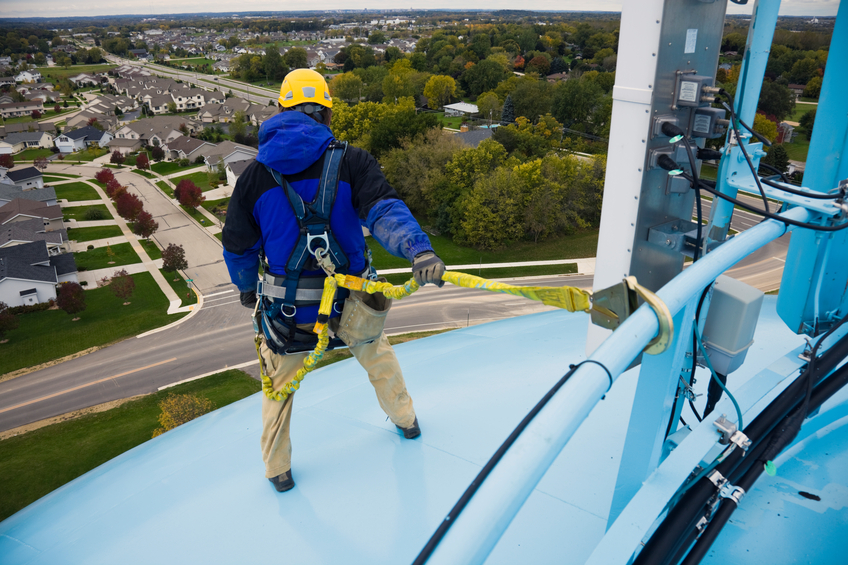South Carolina Construction Safety 30 PDH Discount Package 1
Courses in this Package
Safety and Health Programs in Construction (C03-062)
Personal Protective Equipment (T03-003)
Stairways and Ladders (C01-012)
Controlling Electrical Hazards (E02-002)
Control of Hazardous Energy - Lockout/Tagout (E02-001)
Fundamentals of Fire Protection (M06-023)
A Guide to Working with Corrosive Substances (C01-017)
Underground Construction Safety (C03-014)
Safe Rooms and Shelters - Design Guidance (F04-003)
Safe Rooms and Shelters - Structural Design Criteria (F05-004)

This online engineering PDH course provides responsible employers, workers, and worker representatives with a sound, flexible framework for addressing safety and health issues on diverse construction job sites.
This course follows a proactive approach to managing occupational safety and health rather than a traditional approach where actions are taken only after a worker is injured or becomes sick. Finding and fixing hazards before they cause injury or illness is a far more effective approach. Doing so avoids the direct and indirect costs of worker injuries and illnesses and promotes a positive work environment.
Employers will find that implementing the recommended practices highlighted in this course will bring other benefits as well such as improvements in production/quality, better employee morale, improved employee recruiting and retention, and a more favorable image and reputation among customers, suppliers, and the community.
This 3 PDH online course is applicable to health and safety engineers, construction and project managers, site engineers, and anyone who is interested in improving the standard and level of health and safety on construction sites.
This PE continuing education course is intended to provide you with the following specific knowledge and skills:
- Understanding the seven core elements of the recommended practices for safety and health programs in construction
- Learning about the importance of effective management leadership
- Understanding how to promote worker participation
- Familiarizing with hazard identification and assessment
- Learning about hazard prevention and control
- Familiarizing with the education and training mindset required on site
- Gaining insight on evaluation and improvement programs
- Understanding the importance of communication and coordination for employers on multiemployer worksites
Upon successful completion of the quiz, print your Certificate of Completion instantly. (Note: if you are paying by check or money order, you will be able to print it after we receive your payment.) For your convenience, we will also email it to you. Please note that you can log in to your account at any time to access and print your Certificate of Completion.

This online engineering PDH course addesses Personal Protective Equipment (PPE) types, selection and training, as well as conducting a hazard assessment of the workplace.
Hazards exist in every workplace in many different scenarios: sharp edges, falling objects, flying sparks, chemicals, noise and a myriad of other potentially dangerous situations. Controlling a hazard at its source is the best way to protect employees. Depending on the hazard or workplace conditions, OSHA recommends the use of engineering or work practice controls to manage or eliminate hazards to the greatest extent possible. Therefore, OSHA developed the Personal Protection Equipment Standard to protect employees from workplace hazards that can cause injury.
This 3 PDH online course is applicable to all engineers, employers, building owners, facility managers, and all personnel working on construction projects.
This PE continuing education course is intended to provide you with the following specific knowledge and skills:
- Understanding the types of personal protective equipment (PPE)
- Knowing the basics of conducting a "hazard assessment" of the workplace
- Selecting the appropriate PPE for a variety of circumstances
- Understanding what kind of training is needed for the proper use and care of PPE
In this professional engineering CEU course, you need to review OSHA 3151-12R, "Personal Protective Equipment".
Upon successful completion of the quiz, print your Certificate of Completion instantly. (Note: if you are paying by check or money order, you will be able to print it after we receive your payment.) For your convenience, we will also email it to you. Please note that you can log in to your account at any time to access and print your Certificate of Completion.

This online engineering PDH course provides guidance on OSHA construction safety and health standards that apply to all stairways and ladders used in construction, alteration, repair, painting, decorating and demolition of worksites.
Stairways and ladders are major sources of injuries and fatalities among construction workers, and many of the injuries are serious enough to require time off the job. OSHA recognizes that carelessness/misuse in using stairways and ladders presents serious danger to all workers involved. Therefore, OSHA developed the "Stairways and Ladders" guidance document to minimize hazards and protect employees from construction related accidents.
This 1 PDH online course is applicable to all engineers, employers, building owners, facility managers, and all personnel working on construction projects.
This PE continuing education course is intended to provide you with the following specific knowledge and skills:
- Understanding the general requirements for stairways and ladders
- Learning about the specific rules and safety precautions for all types of ladders
- Learning about the specific rules and safety precautions that govern stairways
In this professional engineering CEU course, you need to review OSHA 3124-12R, "Stairways and Ladders".
Upon successful completion of the quiz, print your Certificate of Completion instantly. (Note: if you are paying by check or money order, you will be able to print it after we receive your payment.) For your convenience, we will also email it to you. Please note that you can log in to your account at any time to access and print your Certificate of Completion.

This online engineering PDH course provides OSHA guidance on controlling electrical hazards for protecting workers from exposure to electrical hazards.
Electricity has been long recognized as a serious workplace hazed, exposing employees to electric shock, electrocution, burns, fires and explosions. According to the Bureau of Labor Statistics, many workers have died from electrocutions at work, accounting for as many as 5% of all on-the-job-fatalities in a given year. What makes these statistics more tragic is that most of these fatalities could have been easily avoided.
OSHA recognizes that electrical hazards present serious hazards to all workers involved. Therefore, OSHA developed several standards for Controlling Electrical Hazards to protect employees working in the construction industry from exposure to electrical hazards.
This 2 PDH online course is applicable to employers, building owners, engineers, electricians, managers, construction workers and any other personnel working on construction projects that involve exposure to electrical hazards.
This PE continuing education course is intended to provide you with the following specific knowledge and skills:
- What affects the flow of electricity
- What is the cause of shocks and their effect on the body
- How to react if someone "freezes" to a live electrical contact
- How to protect yourself against electrical hazards
- What protection does insulation provide
- What are the different types of insulation
- What are circuit protection devices
- What work practices help protect you from electrical hazards
- What role do tools play
- Employee training
In this professional engineering CEU course, you need to review OSHA 3075, "Controlling Electrical Hazards".
Upon successful completion of the quiz, print your Certificate of Completion instantly. (Note: if you are paying by check or money order, you will be able to print it after we receive your payment.) For your convenience, we will also email it to you. Please note that you can log in to your account at any time to access and print your Certificate of Completion.

This online engineering PDH course presents OSHA guidance on the control of hazardous energy for protecting workers from the release of hazardous energy.
Employees can be seriously or fatally injured if machinery they service or maintain unexpectedly energizes, starts up, or releases stored energy. If the potential exists for the release of hazardous stored energy or for the re-accumulation of stored energy to a hazardous level, the employer must ensure that the employees take steps to prevent injury that may result from such release.
OSHA recognizes the risk of employees being exposed to the release of hazardous stored energy. Therefore, OSHA developed the Control of Hazardous Energy Standard to protect employees from the unexpected energization or startup of machinery or equipment, or the release of hazardous energy during service or maintenance activities.
This 2 PDH online course is applicable to employers, building owners, engineers, managers, electricians, construction workers and any other personnel who are involved in servicing and maintaining electrical machinery or equipment.
This PE continuing education course is intended to provide you with the following specific knowledge and skills:
- Elements of The Energy-Control Procedure
- Responsibilities of Workers When Servicing or Maintaining Energized Machinery
- Applicability of Lock-Out Procedures
- Applicability of Tag-Out Procedures
- Lock-Out Versus Tag-Out Applications
- Employee Training
In this professional engineering CEU course, you need to review OSHA 3120, "Control of Hazardous Energy (Lockout/Tagout)".
Upon successful completion of the quiz, print your Certificate of Completion instantly. (Note: if you are paying by check or money order, you will be able to print it after we receive your payment.) For your convenience, we will also email it to you. Please note that you can log in to your account at any time to access and print your Certificate of Completion.

This online engineering PDH course introduces basic fire protection issues related to the safeguarding of life and property against fire loss. It describes the fundamental principles of fire science and of the dynamics of fire growth in buildings and demonstrates how a sound understanding of these is necessary before viable fire protection measures can be implemented. In addition this course develops an engineering appreciation of standard practices and regulations related to the prevention, detection and suppression of fires.
This 6 PDH online course is applicable to mechanical engineers, designers, architects, contractors, building professionals, and all other personnel involved with fire protection projects.
This PE continuing education course is intended to provide you with the following specific knowledge and skills:
- Familiarizing with the fundamentals of fire science
- Understanding the dynamics of fire
- Learning the principles of fire protection
- Knowing the basics of fire detection
- Learning the principles of fire suppression
In this professional engineering CEU course, you need to review the NIOSH Instructional Module, "Fire Protection".
Upon successful completion of the quiz, print your Certificate of Completion instantly. (Note: if you are paying by check or money order, you will be able to print it after we receive your payment.) For your convenience, we will also email it to you. Please note that you can log in to your account at any time to access and print your Certificate of Completion.

This online engineering PDH course provides an introduction to the concepts and principles that can prevent serious health risks to workers due to exposure to corrosives. It also presents proper protection practices from corrosive substances as well as methods of treating exposure to those substances.
Employee exposure to corrosives can be evaluated to determine the need for engineering and administrative controls as well as the need for personal protective equipment. The results from injuries can be severe and even fatal. Mists produced by liquids can result in lung damage if inhaled, serious burns or irritation can be the result of accidental contact to the skin or eyes, and lung and skin cancer have been linked to chromic acid. Additional threats to employees are posed by the ease with which many corrosive chemicals ignite, explode or react with incompatible substances.
This 1 PDH online course is applicable to engineers, designers, contractors, construction workers and other professionals interested in understanding how corrosives work and the best ways to protect oneself from their negative impacts.
This PE continuing education course is intended to provide you with the following specific knowledge and skills:
-
Understanding what corrosives are
-
Evaluating methods of handling corrosives
-
Understanding the risks associated with corrosives
-
Learning about remediation of exposure to corrosives
Upon successful completion of the quiz, print your Certificate of Completion instantly. (Note: if you are paying by check or money order, you will be able to print it after we receive your payment.) For your convenience, we will also email it to you. Please note that you can log in to your account at any time to access and print your Certificate of Completion.

This online engineering PDH course summarizes OSHA's regulations related to underground construction.
The construction of underground tunnels, shafts, chambers, and passageways are essential yet dangerous activities. Working under reduced light conditions, difficult or limited access and egress, with the potential for exposure to air contaminants and the hazards of fire and explosion, underground construction workers face many dangers. OSHA recognizes that working in underground environments presents serious hazards to all workers involved. Therefore OSHA developed the underground construction standard to protect the safety and health of underground construction workers.
This 3 PDH online course is applicable to employers/business owners, engineers, managers, construction workers and all other personnel involved with underground construction projects.
This PE continuing education course is intended to provide you with the following specific knowledge and skills:
- Knowing the construction operations covered by the OSHA regulations
- Familiarizing with the training, notification and communications requirements
- Understanding the site access and ground support procedures
- Understanding the ventilation, illumination and air monitoring requirements
- Learning the special conditions for underground drilling and blasting
- Learning the special requirements for using underground cranes and hoists
- Understanding the hazards that require special precautions and emergency procedures
In this professional engineering CEU course, you need to review OSHA, 3115-06R, "Underground Construction".
Upon successful completion of the quiz, print your Certificate of Completion instantly. (Note: if you are paying by check or money order, you will be able to print it after we receive your payment.) For your convenience, we will also email it to you. Please note that you can log in to your account at any time to access and print your Certificate of Completion.

This online engineering PDH course presents guidance on the design and construction of shelters in the work place, home, or community building to provide the required level of protection that may be assumed by building owners when deciding to build a shelter in response to the manmade CBRE threats as defined in the National Response Plan (
This course considers shelter design concepts that relate to the type of shelter being designed and where it may be located. It discusses how shelter use (either single or multiple) may affect the type of shelter selected and the location of that shelter on a particular site. It also describes key operations zones in and around a shelter that need to be taken into consideration as a means to provide safe ingress and egress and medical assistance to victims of a manmade event (terrorist attack or technological accident). The objective of this chapter is to provide a broad vision on how a shelter should be designed to protect against catastrophic events.
This 4 PDH online course is applicable to engineers, planners, architects, landscape designers, construction and operations personnel, security and law enforcement agents, as well as consultants and contractors who are interested in gaining a better understanding in the design and construction of safe rooms and shelters.
This PE continuing education course is intended to provide you with the following specific knowledge and skills:
- Understating explosive threats and CBR attacks
- Learning the different blast and CBR levels of protection
- Familiarizing with the different types of shelters
- Learning how to site a shelter
- Incorporating protective design criteria including, travel time, accessibility, occupancy duration, TFA floor space and ventilation requirements
- Incorporating other safety design considerations including lighting, emergency power, route marking and signage
- Incorporating building evacuation design considerations
- Understanding and designing the different key operation zones
In this professional engineering CEU course, you need to review Chapter 1 "Design Guidance" of the FEMA Publication tilted, "Safe Rooms and Shelters" (FEMA 453).
Upon successful completion of the quiz, print your Certificate of Completion instantly. (Note: if you are paying by check or money order, you will be able to print it after we receive your payment.) For your convenience, we will also email it to you. Please note that you can log in to your account at any time to access and print your Certificate of Completion.

This online engineering PDH course discusses explosive threat parameters and measures needed to protect shelters from blast effects. Structural systems and building envelope elements for new and existing shelters are analyzed; shelters and FEMA model building types are discussed; protective design measures for the defined building types are provided, and design guidance and retrofit issues are presented. The purpose of this course is to offer comprehensive information on how to improve the resistance of shelters when exposed to blast events.
This 5 PDH online course is applicable to engineers, planners, architects, landscape designers, construction and operations personnel, security and law enforcement agents, as well as consultants and contractors who are in gaining a better understanding of the structural design criteria of safe rooms and shelters.
This PE continuing education course is intended to provide you with the following specific knowledge and skills:
- Understanding explosive threat and blast effect parameters
- Learning the various methods of hardened construction
- Design of new construction vs. retrofitting existing buildings
- Familiarizing with the different FEMA shelters and model building types
- Determining adequate design and construction of buildings exposed to various forces
In this professional engineering CEU course, you need to review Chapter 2 "Structural Design Criteria" of the FEMA Publication tilted, "Safe Rooms and Shelters" (FEMA 453).
Upon successful completion of the quiz, print your Certificate of Completion instantly. (Note: if you are paying by check or money order, you will be able to print it after we receive your payment.) For your convenience, we will also email it to you. Please note that you can log in to your account at any time to access and print your Certificate of Completion.